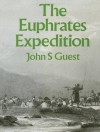A classic collection of essays calling for decolonization through self-liberation
“For us, ” said Amilcar Cabral, “freedom is an act of culture”—and these were not just words. Guided by the concrete realities of his people, Cabral called for a process of “re-Africanization, ” a Return to the Source. As a new imperialism has taken hold the world over, many have hearkened back to Return to the Source, but this time, our source of inspiration is Cabral himself. With a system of thought rooted in an African reading of Marx, Cabral was a deep-thinking revolutionary who applied the principles of decolonization as a dialectic task, and in so doing became one of the world’s most profoundly influential and effective theoreticians of anti–imperialist struggle. Cabral and his fellow Pan-African movement leaders catalyzed and fortified a militant wave of liberation struggles beginning in Angola, moving through Cabral’s homelands of Guinea Bissau and Cape Verde, and culminating in Mozambique and beyond. He translated abstract theories into agile praxis and in under just ten years steered the liberation of three–quarters of the countryside of Guinea Bissau from Portuguese colonial domination.
In this new, expanded edition of Return to the Source: Selected Texts of Amilcar Cabral we have access to Cabral’s warm and humorous informal address to the Africa Information Service, and we revisit several of the principal speeches Cabral delivered during visits to the United States in the final years before his assassination in 1973, including his last written address to his people on New Year’s Eve. Return to the Source is essential reading for all who understand that the erasure of historical continuity between social movements has disrupted our ability to make the revolutionary transformation we all desperately require.
เกี่ยวกับผู้แต่ง
Tsenay Serequeberhan is a Professor of Philosophy at Morgan State University in Baltimore. He is the author of the groundbreaking work The Hermeneutics of African Philosophy: Horizon and Discourse and the key text, African Philosophy: The Essential Readings, among other books.












